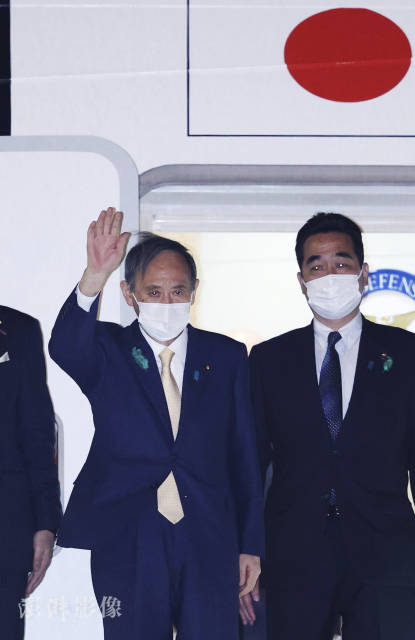Yoshihide Suga visits the United States to meet with Biden tomorrow
[Text/Observer Net Ju Feng] On April 16, local time, Japanese Prime Minister Yoshihide Suga will meet with US President Biden at the White House. Yoshihide Suga has set off yesterday. This meeting is of special significance to the leaders of the two countries-Yoshihide Suga will become the first foreign leader to meet Biden (offline), and it is also the first visit to the United States by Yoshihide Suga as the prime minister of Japan.
NHK reported that Yoshihide Suga will also seek U.S. cooperation in successfully hosting the Olympic and Paralympic Games. Dongao has entered the 100-day countdown.
All in all, at the White House summit on the 16th, Yoshihide Suga left with the goal of strengthening the Japan-US alliance and establishing mutual trust between leaders.
Biden and Yoshihide Suga map from Japanese media
The US media, which talks about China on weekdays, also predict that China will be the core agenda.
The US Consumer News and Business Channel (CNBC) stated that “China’s growing influence will be the focus of discussion at the summit.” This meeting is the first face-to-face summit held with a foreign leader since Biden took office as US President. This shows Japan’s position in the hearts of the Biden administration.
CNBC quoted an analyst from Control Risks, a consulting firm, as saying that rebuilding the US-Japan alliance and competing with China are the core of Biden’s foreign policy. The meeting between Biden and Yoshihide Suga showed that Japan is the key to this policy.
CNBC quoted a report from the Nikkei on April 6 that the leaders of the two countries will also discuss infrastructure projects such as 5G networks and clean energy-the United States and Japan may use such cooperation to counterbalance China’s “Belt and Road” initiative. .
The “New York Times” stated that Biden will restore the ally that Trump has messed up through the meeting with Suga Yoshihide, and hopes to unite Japan to fight China more effectively.
The New York Times believes that Japan should also clearly express its attitude toward China to the United States, such as its position on Taiwan, rather than unilaterally seeking security protection from the United States.
It must be mentioned that the British media “Financial Times” reported on the 14th that the Biden administration is constantly pressing Suga Yoshihide to publicly mention Taiwan in the joint statement, but Japan is still hesitant about this.
Before the 2+2 meeting, Japan was relatively cautious on the Taiwan issue. However, after the joint statement of the 2+2 meeting was released, Japan’s attitude on the Taiwan issue was severely criticized by China. On March 17, Chinese Foreign Ministry spokesperson Zhao Lijian criticized the US-Japan joint statement for seriously interfering in China’s internal affairs and vainly attempting to harm China’s interests.
According to the New York Times, whether Japan will embark on the path of “against China”, Yoshihide Suga’s trip to the United States may provide some clues.
China and the United States are Japan’s first and second largest partner countries respectively. As Japan leans toward the United States in its stance, the United States has also supported Japan’s erroneous policies “regardless of black and white.”
After the Japanese government declared that it would discharge the Fukushima nuclear waste water containing radionuclides into the Pacific in spite of its opposition, US Secretary of State Brinken immediately expressed his gratitude for “Japan’s transparency.”
Suga Yoshihide said before departure on the 15th that he hopes to establish a relationship of trust with Biden through the talks and further consolidate the Japan-US alliance. He also said that he will demonstrate Japan-US “leadership” to the world toward the realization of a “free and open India-Pacific”.
NHK reported yesterday that due to the impact of the new crown epidemic, Yoshihide Suga’s delegation has reduced its size. About 80 people accompanied the Prime Minister on the visit, which is a reduction of 20% to 30% from normal times; Yoshihide Suga’s wife will stay in Japan.
Finally, by the way, the White House said on the 15th that Biden will meet with the visiting South Korean President Moon Jae-in in late May. Moon Jae-in will become the second foreign leader to visit the United States after Yoshihide Suga. This move was interpreted by foreign media as South Korea’s pursuit of “isometric diplomacy” (with Japan).
This article is an exclusive manuscript from Observer.com and may not be reproduced without authorization.

You must log in to post a comment.